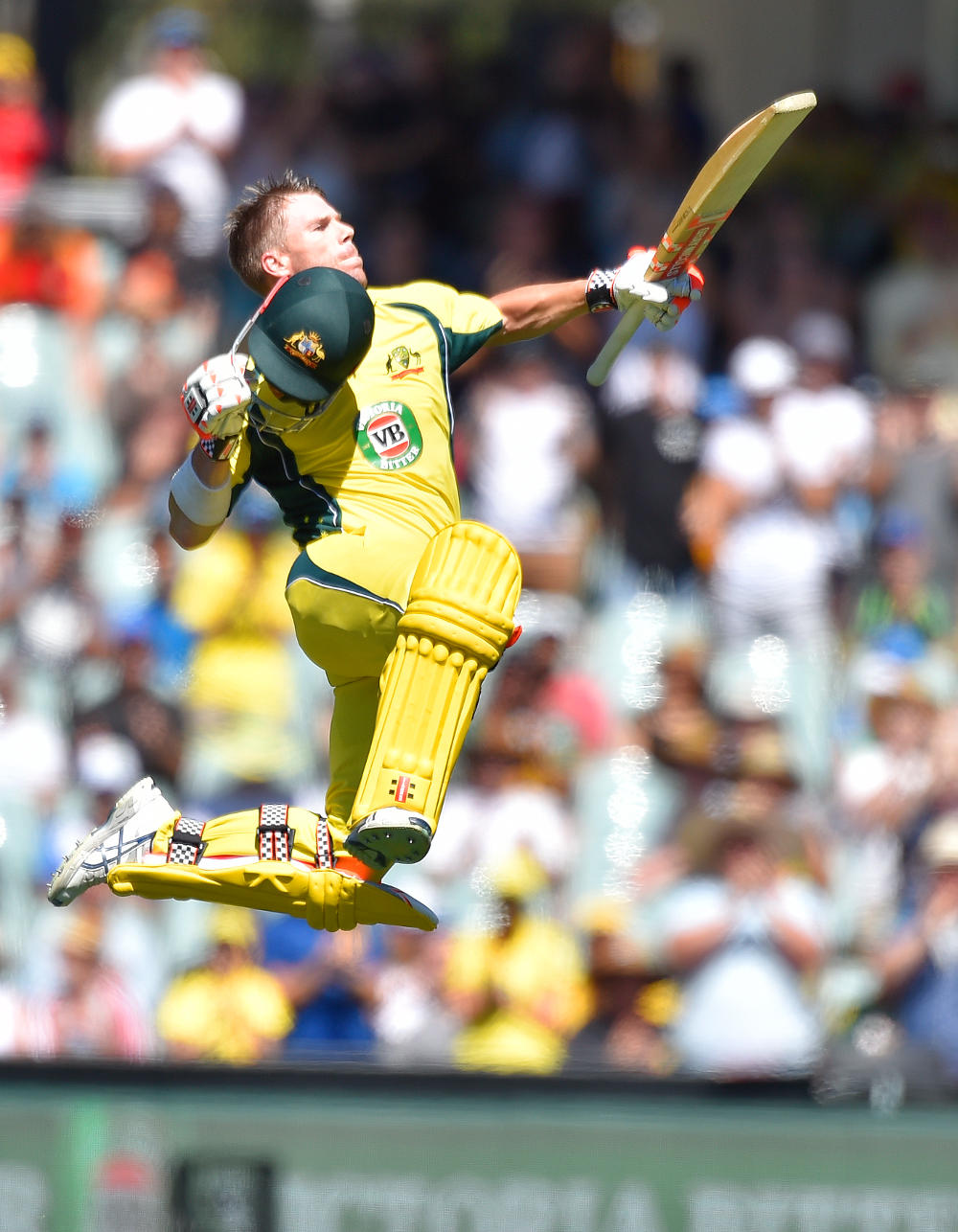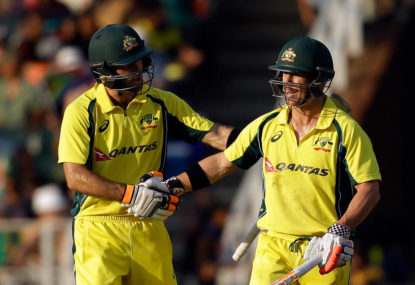An expected flat pitch at Edgbaston should favour Australia in their Champions Trophy opener today against New Zealand, who have had the measure of the Aussies on bowler-friendly decks.
The past two ODIs at Edgbaston have seen incredible batting feats, with England piling up 408 batting first in one match and scoring 0-256 batting second in the other.
There is no indication the pitch for today’s match will be any less amenable to batting in a tournament which is expected to be extremely high-scoring.
This would not benefit the Kiwis, one of the few teams to still produce home ODI pitches which offer a decent balance between bat and ball, as opposed to the roads now so common in Australia, England and India.
New Zealand are at their best on ODI pitches which offer a bit of assistance to the bowlers, in contrast to the Australians who are more potent on lifeless surfaces. This is evident in the recent results between the Trans-Tasman rivals.
Since the start of the 2015 World Cup, Australia and New Zealand have faced off ten times in completed ODIs, with five wins apiece. During that time, Australia have dominated the Kiwis at home, on batting-friendly pitches, winning all four matches by comfortable margins.
By comparison, Australia have floundered over in New Zealand, winning only one of six matches.
The source of their woes in those losses in New Zealand has been the fragility of their batting against the moving ball. Kiwi pacemen Trent Boult and Matt Henry flummoxed the Australian batsmen with swing and seam movement respectively.
Henry will not be a concern for Australia today having, rather strangely, been left out of the New Zealand squad for this tournament. Boult, however, shapes as New Zealand’s single most important player. The clearest route to victory for the Kiwis is to break through Australia’s powerful top order and expose their questionable middle.
While David Warner and Steve Smith are intimidating propositions, there is little to fear beyond that star duo. With his phenomenal ODI record against Australia – 24 wickets at an average of 18 – Boult is the man who can do the necessary damage with the new ball.

(AAP Image/David Mariuz)
Australia have gambled on aggressive batsmen, overlooking steadier options such as George Bailey, Usman Khawaja and Shaun Marsh in favour of the more dynamic Chris Lynn and Aaron Finch. This will give them a relatively one-dimensional batting line-up, one liable to either rack up a monster total or get rolled cheaply.
The new ball may seam and swing a touch in English conditions, which will make the first ten overs of every Australian innings in this tournament remarkably important. If Australia negotiate that period unharmed they will be in prime position to unleash their heavy hitters.
But New Zealand will feel that Boult can exploit the new ball to turn Australia’s attacking selection strategy against them.
Boult will be particularly dangerous against Warner, who has been in extraordinary ODI form with eight centuries in the past 12 months.
The Kiwi left armer’s ability to get the ball to swing late away from Warner could expose the Australian’s famously flat footwork. Pakistan leftie Mohammad Amir has done just this to Warner numerous times in ODIs in the past six months.

(AFP PHOTO / MARTY MELVILLE)
If Boult cannot undo Warner early then things could get decidedly ugly for the Kiwis on a flat Edgbaston track. Warner is fresh from another dominant Indian Premier League season and is in career-best white ball form.
He is my pick to be the leading runscorer of the tournament.
While New Zealand’s bowling shapes as a potential weakness, with only Boult looming as a major threat, their batting is impressive.
The Kiwis don’t have the batting depth of teams like South Africa or England. What they do have, though, is two brilliant ODI batsmen in Kane Williamson and Martin Guptill. Since the start of 2015, no one in the world has scored more ODI runs than Guptill’s 2461 at an average of 53.
Warner (2407 runs at 62) is in second spot during that period, followed by Williamson (2316 runs at 48) and Smith (2180 runs at 52) in third and fourth.
Guptill and Williamson have underperformed against Australia during their ODI careers, both averaging just 35 against the Aussies, well below their respective career averages of 44 and 46.
Williamson is yet to play a breakthrough ODI knock against the Aussies – a big innings in which he dominates their attack. But Guptill has clearly unlocked the secret to success against Australia in the past 18 months after playing woefully against them earlier in his career.
In Guptill’s first 15 ODIs against Australia he averaged a paltry 21, whereas since February 2016 he has smashed them for 434 runs at 62.
Williamson is a fantastically well-rounded player who is often the bedrock of Kiwi ODI innings. It is Guptill, however, who Australia will be most wary of.
He and Boult must fire today if New Zealand are to win and put Australia on the verge of being knocked out of this brief tournament.































































































